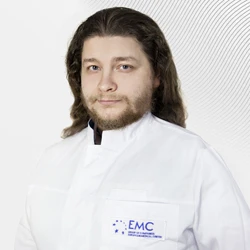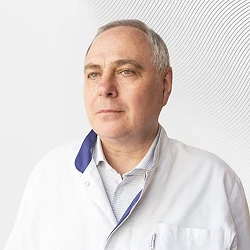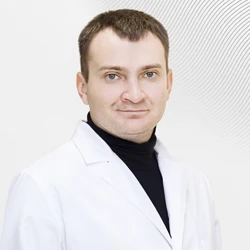Post-traumatic stress disorder
Says the head of the clinic of psychiatry and psychotherapy,
psychiatrist, psychotherapist Natalia Rivkina

Every person inevitably gets into difficult situations during their life. It can be stress at work, illness or the loss of a loved one, a car accident. Often, people in a moment of crisis, trying to support their loved ones, forget about themselves, try to cope with difficulties on their own.
It is important to understand that the most severe stress reactions do not develop at the time of the traumatic event, but much later, after 3-5 months. For the patient, they may have nothing to do with the difficult events he has experienced. Such conditions are called delayed stress reactions.
How do delayed stress reactions manifest themselves?
The symptoms of post-stress disorder are similar to those of depression or anxiety disorder, they are characterized by:
fatigue,
feeling of anxiety,
panic attacks,
low mood,
sleep disorders,
anxiety, irritability,
feeling of apathy,
loss of meaning in life, unwillingness to do the usual things.
A person may become isolated and stop communicating with friends and family. Sometimes people leave their jobs, their favorite activities, and break off relationships with their loved ones because they don't see the point in them.
The reason is post-stress disorders, which can and should be treated.
What happens to a person at the moment of a traumatic event
In addition to delayed reactions to stress, there are conditions that people experience at the time of injury. At the moment of difficult events, some people do not experience any feelings and emotions. This is one of the main reasons they don't seek help. A person is in a state of dissociation, as if observing what is happening from the outside, not being a participant in the events. It seems to him that events are not happening to him. Patients often say that they do not cry, do not experience any emotions, and act as if automatically. It seems to them that they are coping well with what is happening on their own. In fact, the less emotionally a person reacts, the more acute reactions to stress they experience. If the state of dissociation persists for several weeks, it is very important to consult with specialists in order to rule out pathological reactions to stress.
Natural and pathological reactions to stress
There are normal reactions to stress that everyone experiences.
For the first 2-3 days after heavy news or traumatic events, people experience shock, it seems to them that events are not happening to them.
Shock is replaced by anger and anger. People are angry at themselves, at their loved ones, at circumstances.
When they fully realize what has happened, people feel despair.
Then comes the stage of reintegration, when a person begins to build his life further.
 Each of these stages has its own duration, but sometimes people can remain in a state of shock for years. Against this background, a person loses the meaning of life, relationships, and falls into depression. Life can be ruined simply because the patient did not receive adequate support at the time when the traumatic events occurred.
Each of these stages has its own duration, but sometimes people can remain in a state of shock for years. Against this background, a person loses the meaning of life, relationships, and falls into depression. Life can be ruined simply because the patient did not receive adequate support at the time when the traumatic events occurred.
Young children and the elderly are most susceptible to developing pathological or delayed reactions to stress, including post-traumatic stress disorder. Often, family members hide information from their children or parents in order to protect them. Ignorance makes people even more vulnerable. They may feel the tension associated with secrecy, distrust from relatives.
The more time passes from the moment of a serious event to the moment when a person finds out about it, the higher the risk of post-traumatic stress disorder. If there are young children and older people in the family that you are worried about, it makes sense to consult a specialist. The doctor will teach you how to communicate difficult news correctly.
Treatment methods for post-stress conditions
The main help is psychotherapy. It is important to contact doctors who specialize in dealing with traumatic and post-stress conditions, because this is a separate area of psychotherapy that requires special skills. The EMC Clinic of Psychiatry and Psychotherapy in Moscow works with post-stress conditions in children and adults Natalia Rivkina. She has a specialization and extensive experience in this field.
In case of acute stress reactions, we try to avoid drug therapy. But if there are severe sleep disorders, high anxiety, we can prescribe antidepressants.
Important! At the stage of an acute stress reaction, you should not take tranquilizers. They can provoke the development of more severe conditions in the future. Unfortunately, most people have tranquilizers at home. If you have any questions about the need for emergency medication, it is better consult a psychiatrist so as not to harm a loved one.
The main goal of psychotherapy is to help the patient get through a difficult time, find resources and support that will help him adapt to the events and build his life further.
If a family loses a loved one, it is necessary to change the structure of the family, and sometimes the way of life. For example, if we are talking about the loss of a person who earned money or dealt with child rearing issues. The whole family has to go through a life transformation, and here psychotherapeutic support can be very important. Stressful situations are always associated with the loss of the meaning of life and it is very important that a person finds this meaning, finds guidance and strength to move on.
The goal of psychotherapy is for a person who has experienced traumatic events to be able to continue living a fulfilling life filled with meaning and joy. Many people who are faced with life-threatening situations are afraid to consult a therapist because they fear that they will have to relive painful moments. Modern psychotherapy protects a person from reliving trauma. A doctor who specializes in dealing with trauma knows how to conduct the psychotherapy process so that it is not painful and traumatic for the patient.
Natalia Rivkina
Why the EMC
The first and only clinic in Russia, created in the image of the world's leading clinics
EMC is a multidisciplinary center offering patients a high level of medical services and a personalized approach
Worldwide recognition and awards
 Learn more
Learn more
Worldwide recognition and awards
 Certificates and licenses
Certificates and licenses
Make an appointment for a consultation
Specify your contacts and we will contact you to clarify the details
and new products of the EMC





.webp)

.webp)





.webp)





.webp)
